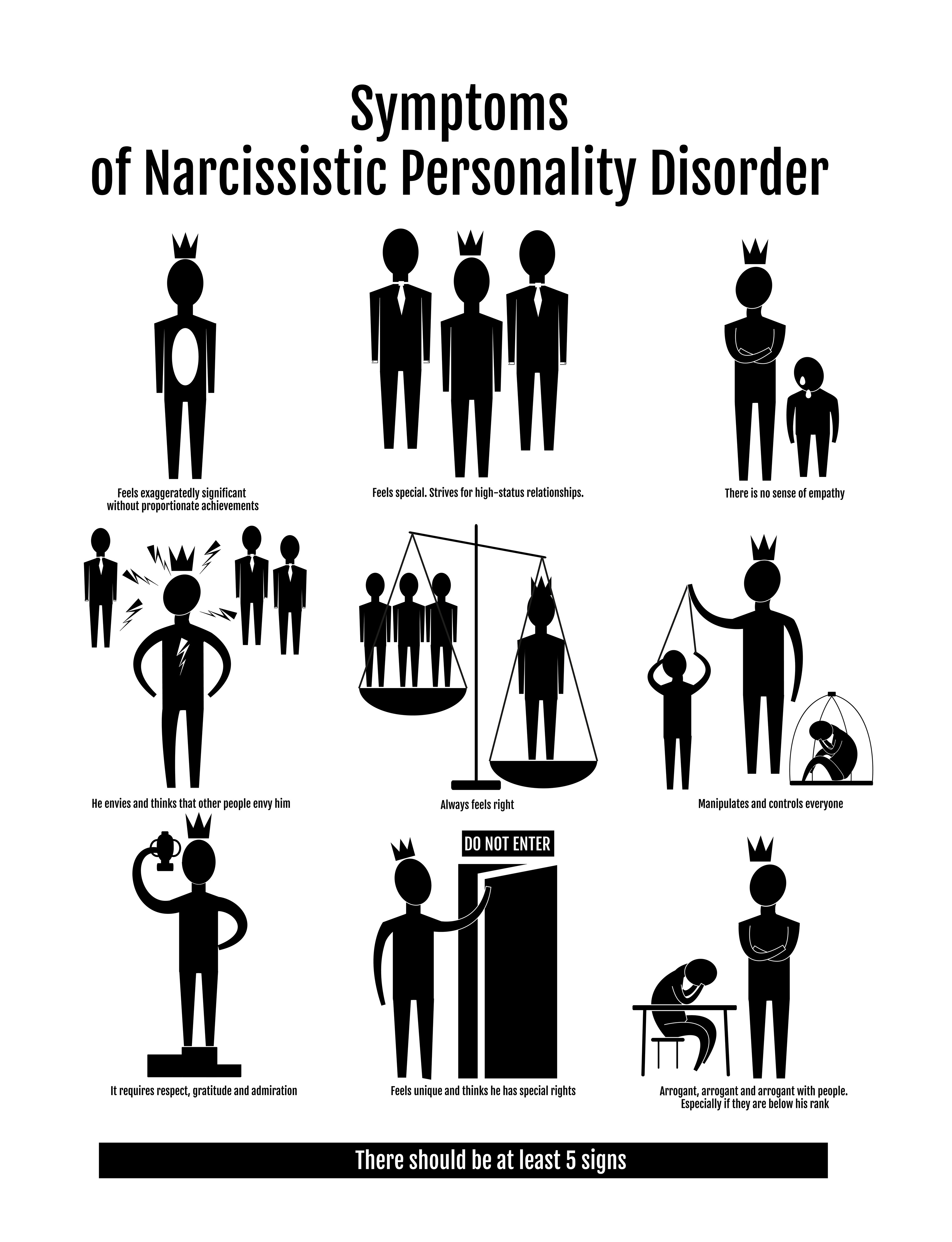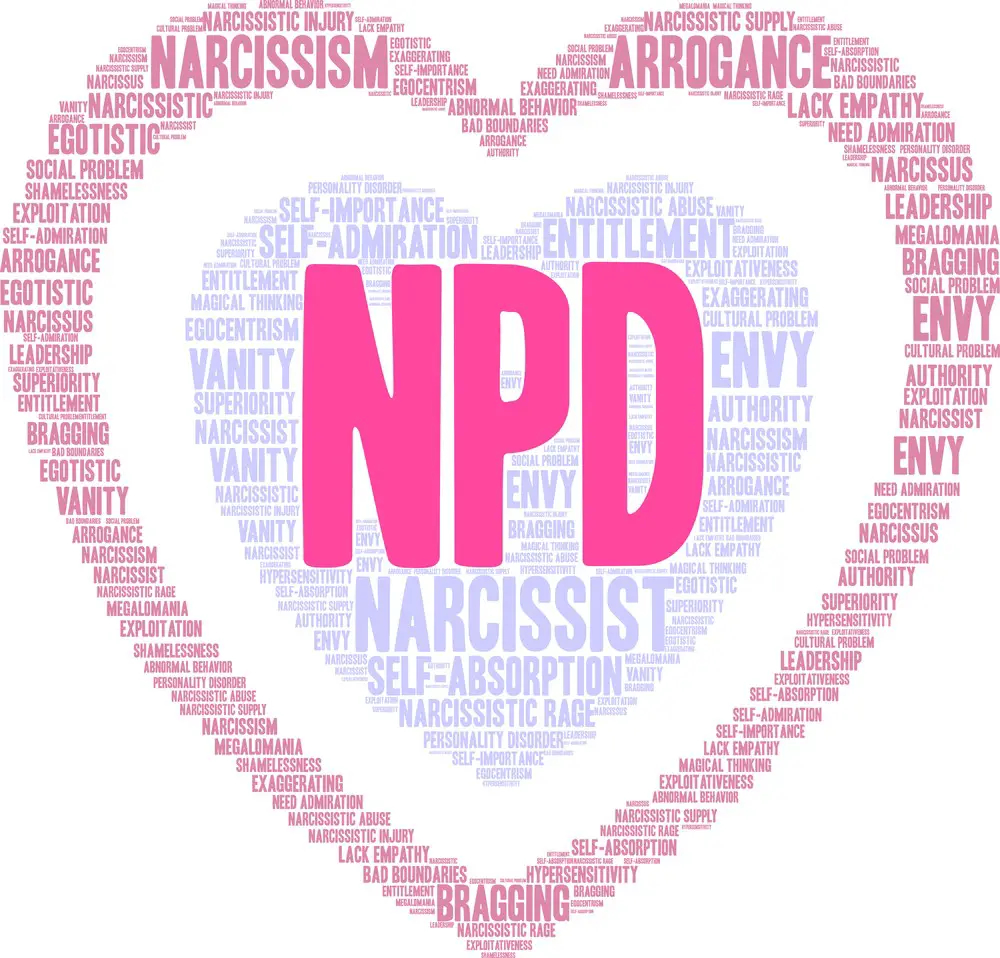As a BetterHelp affiliate, we receive compensation from BetterHelp if you purchase products or services through the links provided
Narcissistic personality disorder is characterized by an exaggerated sense of self-importance, a craving for constant admiration, and a lack of empathy for others. People with this disorder often use manipulative tactics to control their relationships. One common tactic is the “chase,” in which the narcissist demands attention and validation from their partner, who is often left feeling exhausted and desperate to please.
You may wonder how they react when you finally stop chasing a narcissist. Will they be angry, lash out, or become manipulative? The answer often combines these responses, as the narcissist struggles to maintain control and their fragile self-image. Understanding this reaction and how to deal with it can be an important step toward finding happiness outside a toxic relationship.
Key Takeaways
- Narcissists use manipulative tactics, such as the “chase,” to control their partners.
- Stopping the chase can result in various reactions from the narcissist, often aimed at regaining control.
- Understanding the narcissist’s reaction and developing healthy coping strategies can help you find happiness outside of the relationship.
 Understanding Narcissistic Personality Disorder
Understanding Narcissistic Personality Disorder
Narcissistic Personality Disorder (NPD) is a mental health condition characterized by a pervasive pattern of grandiosity, need for admiration, and lack of empathy for others. People with this disorder often have an inflated sense of self-importance and entitlement. They may be preoccupied with unlimited success, power, and beauty fantasies. Let’s dive into some key aspects of narcissism:
- Grandiosity: This is the hallmark of narcissism. People with NPD often believe they are superior to others and deserve special treatment. They may exaggerate their accomplishments and talents, expecting others to recognize their greatness.
- Entitlement: Narcissists feel entitled to get whatever they want, whenever they want it. They struggle to accept criticism and can become easily offended by perceived slights. This sense of entitlement often leads to manipulative behavior to achieve their desired outcomes.
- Need for admiration: Narcissists thrive on praise and approval from others. They may become overly concerned with their appearance, social status, and material possessions. This constant need for admiration can create a superficial facade that masks deep-seated feelings of insecurity.
When you stop chasing a narcissist, their reaction can be unpredictable and intense. They may feel threatened by the loss of control and the withdrawal of your attention. This could lead to various responses, from anger and indignation to attempts to lure you back into their web. Preparing for these reactions can help you respond appropriately and maintain your emotional well-being.
Key takeaway: Narcissistic Personality Disorder encompasses grandiosity, entitlement, and a constant need for admiration. Understanding these traits can help you navigate relationships with narcissists and protect yourself from their potentially harmful behavior.
The Chase: Narcissist’s Control and Manipulation Tactics
 The Cycle of Love Bombing and Devaluation
The Cycle of Love Bombing and Devaluation
Initially, a narcissist may shower you with attention, affection, and praise. This is called love bombing. They make you feel special and cherished, but this is only to win your trust and make you dependent on their validation.
Once they have you hooked, the narcissist will transition to the devaluation phase. During this time, they may become dismissive, critical, and emotionally distant, leaving you confused and longing for the affection they initially gave you. This creates a cycle where you’re constantly chasing their approval and validation, making it easier for them to manipulate and control you.
Gaslighting: Manipulation and Control
Another tactic narcissists often use is gaslighting. This method manipulates you into doubting your perceptions, memory, and sanity. They may:
- Deny saying or doing something, even when you have clear evidence.
- Dismiss your feelings and opinions as irrelevant or irrational.
- Blame you for their abusive behavior, making you question your actions.
By destabilizing your sense of reality, a narcissist can gain control over you and keep you in perpetual uncertainty.
Key Takeaway: Recognize the signs of love bombing and gaslighting to regain control of your emotions and perceptions.
Narcissistic Rage and Power Play
When a narcissist feels threatened or challenged, they may lash out in what is called narcissistic rage. This aggressive behavior can come in many forms, such as verbal abuse, manipulation, or stonewalling. Narcissists often use rage as a power play to re-establish their dominance and make you feel inferior. They may also employ silent treatment or emotional abuse to regain control.
Setting boundaries and distancing yourself from the narcissist is crucial to cope with these power plays. Engage with a therapist to help you work through the emotional manipulation and develop strategies to resist the toxic dynamics.
Key Takeaway: To protect yourself from narcissistic rage and power plays, set boundaries, seek professional support, and maintain self-awareness.
When you stop chasing a narcissist, their control over you diminishes, and they may escalate their manipulation tactics or choose to discard you in search of a new supply. Recognizing and understanding these tactics can help you regain power over your life and break free from the cycle of emotional abuse.
 Effects of Chasing a Narcissist: Emotional and Psychological Consequences
Effects of Chasing a Narcissist: Emotional and Psychological Consequences
Impacts on Self-Esteem
When you chase a narcissist, your self-esteem may suffer. This is because they thrive on attention and may use it against you to make themselves feel superior. They often employ manipulation tactics disguised as love or concern to keep you feeling inadequate. As a result, you may start to question your worth and feel guilt or shame for imposing your needs and desires on them.
The Devaluing-Discarding Cycle
Chasing a narcissist can also make you susceptible to their devaluing-discarding cycle. This occurs when they initially shower you with excessive admiration and then abruptly devalue or discard you. They may use projection and blame tactics to keep you questioning your intentions and feelings, ultimately causing insecurity and self-doubt to creep in.
This cycle can be psychologically distressing as it creates an emotional rollercoaster of love and rejection, leaving you constantly seeking validation. Maintaining boundaries can be crucial in breaking this cycle and taking back control of your mental health.
Feeling of Insecurity and Self-doubt
As you continue to chase a narcissist, feelings of insecurity and self-doubt become more pronounced. Constantly belittling and attacking your needs and emotions may cause you to question your thoughts and behaviors. They thrive on undermining your confidence because it keeps them in power.
Narcissists have an innate ability to make you feel like any issue in the relationship is your responsibility. They might even convince you you are the “evil” in the dynamic. Recognizing this psychological manipulation and focusing on personal growth is essential to regain your confidence and sense of self. Going “no contact” or seeking help from a therapist can also play a pivotal role in overcoming the negative effects of chasing after a narcissist.
Key takeaways: Chasing a narcissist can have negative emotional and psychological consequences, including damaging self-esteem, experiencing the devaluing-discarding cycle, and increased insecurity and self-doubt. Recognizing these patterns and focusing on self-care and growth can help overcome the lasting effects of a narcissistic relationship.
Ceasing to Chase: Narcissist’s Reactions
When you stop chasing a narcissist, their reactions can vary greatly. For some, losing your admiration might lead to anger and rejection. This happens because they thrive on being admired and controlling those around them. They might try harder to regain the lost control, often resorting to manipulation tactics like guilt-tripping, flirting, or charming you back into their orbit.
In other cases, they might choose to show off or act disinterested to make you feel as though they don’t need you. They might even become aggressive and exhibit behaviors like verbal abuse or stalking to try and punish you for leaving. The key takeaway is that when you stop chasing them, their reaction will be centered around gaining control or overshadowing the impact of your decisions.
If the narcissist feels ignored, their response may include a barrage of texts or attempts to make you feel guilty. They might also resort to extra drama to return your attention. This is their way of demonstrating their perceived power over you. Remember, narcissists only feel strong when they believe they control your emotions.
When you cease to chase a narcissist, you’ll likely discover that they will try various methods to regain your attention and admiration. Unfortunately, these tactics often involve manipulation and damage your self-esteem and well-being. You must stick to your decision to stop chasing them and prioritize your emotional health.
Developing a Healthy Response towards Narcissists
Creating Boundaries
Establishing healthy boundaries with the narcissists in your life is crucial, whether they are friends or family members. When you stop chasing them, they may react angrily or attempt to manipulate you. Remember that setting boundaries is essential for your well-being, and don’t allow their behavior to derail your progress.
- Clearly define your expectations and limits with the narcissist.
- Be firm but fair and assertive in expressing your needs.
- Hold yourself accountable to maintaining those boundaries, even when pressured to change them.
Maintain No Contact
Maintaining no contact is another important strategy in developing a healthy response towards narcissists. If you’ve recognized the red flag signs that indicate a person may be a narcissist, it’s important to prioritize your self-respect and avoid further engagement.
- Limit the opportunities for contact with the narcissist.
- If contact is necessary, keep interactions brief and professional.
- Reach out to supportive friends and family members to help you stay strong in your decision to maintain distance.
Prioritizing Self-Care
Taking care of yourself is essential when dealing with narcissists. As you stop chasing them and focus on your needs, remember to prioritize self-care to help cope with negative reactions or backlash.
- Make time for activities that bring you joy and relaxation.
- Seek therapy or counseling to help you process the relationship and work towards a healthier mindset.
- Celebrate your achievements and give yourself the praise you deserve.
Key Takeaway: Establishing boundaries, maintaining no contact, and focusing on self-care will help you develop a healthy response towards dealing with narcissists. Stick to your boundaries, prioritize your well-being, and lean on your support system to overcome these challenging relationships.
 When is it Time to Consult the Pros? Knowing When to Seek Therapy
When is it Time to Consult the Pros? Knowing When to Seek Therapy
You might be in emotional quicksand after ending the chasing cycle with a narcissist. You may wonder if therapy is your next stop. Here’s how to gauge it:
- Feelings of confusion or guilt are overwhelming you.
- You’re struggling to set boundaries and stick to them.
- The emotional rollercoaster has you feeling exhausted.
- You find it challenging to break free from the narcissist’s orbit.
Setting Sail: Goals for Your Emotional Odyssey
Whether you decide to go for therapy or navigate these choppy waters yourself, setting clear goals is a must.
Therapeutic Goals
- Understand the dynamics of a relationship with a narcissist.
- Build healthier coping mechanisms.
- Learn how to set and maintain strong boundaries.
- Develop a strong support network.
Footprints in the Sand: Recognizing Your Progress
It’s easy to feel like you’re spinning your wheels when dealing with a narcissist. But there are signs that you’re moving forward.
Signs of Progress
- You’re more confident in asserting your boundaries.
- The emotional hold the narcissist had is weakening.
- You’re cultivating healthier relationships and cutting off toxic ones.
- Your emotional well-being is no longer solely tied to the narcissist’s moods or actions.
These markers can help you gauge your progress and stay the course. With the right mindset and perhaps some professional guidance, you can gain the emotional freedom you deserve.
Closing Thoughts: Achieving Happiness Outside Narcissism
Nurture relationships with friends and family: Surround yourself with positive, supportive people who genuinely care about your well-being. Strong friendships and family connections can offer emotional support and fill the void left by distancing yourself from a narcissist.
Find your happiness: Remember, the key to happiness lies within you, not in the approval or validation of a narcissist. Focus on activities and hobbies that bring you joy and help you grow.
Seek professional help: If necessary, consider talking to a therapist or counselor who can provide guidance and help process the emotions associated with a relationship with a narcissist.
Turn to outside sources for support: Look for online forums, support groups, and articles that offer insights, shared experiences, and resources to help you navigate life without chasing a narcissist.
Ultimately, stepping back from a narcissist can be a liberating experience. It allows you to take control of your happiness, build meaningful connections with others, and free yourself from the chaos that often comes with a narcissistic relationship. Remember to prioritize self-care, practice self-compassion, and embrace the journey towards your happiness.
Frequently Asked Questions
How do narcissists respond when ignored?
When you ignore a narcissist, they might react with anger, frustration, or even desperation. They’re used to being the center of attention and will go to great lengths to regain control. You might notice the following:
- Acting more aggressively or making rude comments
- Manipulating situations to force a reaction from you
- Trying to make you feel guilty for ignoring them
Remember, your well-being comes first, so stay calm and stick to your boundaries.
What happens if you stop giving them attention?
If you deprive a narcissist of the attention they seek, they’ll likely try various methods to regain it, such as:
- Putting you down to elevate themselves
- Complimenting you excessively to reel you back in
- Latching onto someone else for adoration and validation
Though it may be tempting to give in, maintain your distance and remember why you stopped chasing them.
How does a narcissist feel when you move on?
When you move on from a narcissist, they’ll probably feel threatened, losing their sense of control and superiority. To cope, they might:
- Attempt to sabotage your progress
- Suddenly, show interest in you to hook you back in
- Devalue you to make themselves feel powerful
Focus on your growth, and don’t let their tactics deter you.
What’s a narcissist’s reaction to being called out?
If a narcissist is confronted about their behavior, they often react defensively by:
- Gaslighting you, making you doubt your perception
- Playing the victim, claiming they’re being unfairly targeted
- Shifting blame onto you or someone else
Stand your ground and remember you have the right to express your concerns.
Do narcissists want to be left alone?
Narcissists typically thrive on attention, but some may occasionally desire solitude to:
- Plot schemes or devise strategies for social games
- Focus on self-aggrandizement and self-care
- Seek attention from a different person or group
If they want space, grant it, but don’t expect this behavior to last too long.
How long will a narcissist pursue someone?
There’s no set time frame for how long a narcissist might pursue someone, as it can vary depending on factors like:
- The intensity of their attraction to the person
- Whether they feel threatened by losing their target
- The appeal of a potential new target for their attention
Ultimately, it’s up to you to decide when enough is enough and take action to distance yourself from their toxic influence.
Navigating the Labyrinth of Emotional Challenges: Who is Jacob Maslow?
Hi, I’m Jacob Maslow. I’ve walked the tightrope of co-parenting with a narcissistic ex-spouse and lived to write about it. As someone well-versed in therapy—I even take Lexapro to keep my mental health on track—I’ve faced formidable challenges, especially regarding reunification therapy with my kids. Despite my ex’s damaging smear campaigns and refusal to comply with court orders, I’ve kept moving forward.
My daily long walks aren’t just for physical health; they’re my meditative space to clear my thoughts. Beyond personal experience, I channel my insights into articles to help others struggling with mental health and narcissistic relationships. I even run a legal site focused on non-compliance in custody and co-parenting. If I can navigate these choppy waters, so can you. So, let’s learn, grow, and find our way to better mental health together.
- 7 Ideas to Help You Relax and Unwind on a Family Vacation - April 27, 2025
- How Having Cybersecurity Protection Helps You Relax - April 25, 2025
- 8 Reasons Why Spending Time Outside Calms You Down - April 25, 2025
This site contains affiliate links to products. We will receive a commission for purchases made through these links.


 Understanding Narcissistic Personality Disorder
Understanding Narcissistic Personality Disorder The Cycle of Love Bombing and Devaluation
The Cycle of Love Bombing and Devaluation Effects of Chasing a Narcissist: Emotional and Psychological Consequences
Effects of Chasing a Narcissist: Emotional and Psychological Consequences
 When is it Time to Consult the Pros? Knowing When to Seek Therapy
When is it Time to Consult the Pros? Knowing When to Seek Therapy
